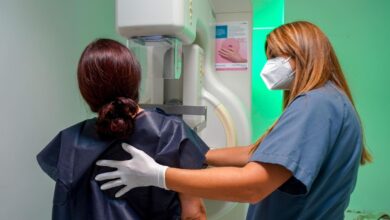Living organ donors need better long-term medical support

These risks include hypertension, diabetes, and potential kidney failure. Despite these risks, there is a lack of comprehensive data collection and monitoring of living donors’ long-term health outcomes.
The story of Robin and her sister highlights the challenges faced by living organ donors. Robin’s decision to donate a kidney to her brother ultimately impacted her health in the long run, leading to complications and eventually her untimely death. Similarly, the author’s experience as a kidney donor also resulted in health complications, including difficulties during pregnancies and kidney injuries from medical procedures.
The lack of adequate data collection and monitoring of living donors’ health outcomes is a concerning issue that needs to be addressed. The focus on increasing organ donation rates often overlooks the well-being of living donors. The current system prioritizes organ supply without adequately safeguarding the health and well-being of those who selflessly donate their organs.
Efforts to encourage living organ donation through incentives and support for donors are important, but they should not overshadow the need for thorough monitoring and data collection on long-term donor outcomes. The neglect of this aspect of organ donation not only puts living donors at risk but also hinders the ability to provide proper care and support to those who have made such a significant sacrifice.
It is crucial for policymakers, healthcare professionals, and transplant organizations to prioritize the long-term health and well-being of living organ donors. Comprehensive data collection, monitoring, and support systems must be put in place to ensure that living donors are adequately cared for and their health outcomes are closely monitored. Only by addressing these issues can we truly honor the selfless generosity of living organ donors and ensure their well-being is protected for years to come. Access to Medicare benefits is crucial for individuals in need of consistent and reliable healthcare coverage. Commercial insurance and state Medicaid plans can often be unpredictable and inconsistent, leaving many individuals without the necessary support they require for their medical needs. By adding a “prior donor” modifier to CMS-1500 standardized billing forms used by healthcare providers, we can ensure the collection of high-quality health data. This modification would not only help overcome research limitations but also override the ongoing resistance of UNOS/OPTN to document the long-term health impacts of living donations.
The Health Resources and Services Administration (HRSA) is taking steps to modernize the Organ Procurement and Transplantation Network (OPTN), with a new board of directors set to assume leadership soon. However, the impact of these reforms, combined with recent staffing and budget cuts at the Department of Health and Human Services (HHS), leaves the future of care and support for living donors uncertain.
Robin, a living kidney donor, felt a sense of pride in her decision to donate, even though her kidney did not ultimately help her brother. Unfortunately, neither did mine. Our brother tragically passed away after enduring three decades of dialysis and three unsuccessful transplant surgeries. Throughout his journey, he maintained his emotional depth and intellectual integrity. He would have been proud to know that his sisters’ stories may inspire a future where the well-being of donors is prioritized, and their selfless gifts of life are met with the support and care they deserve.
Jane Zill, L.I.C.S.W., a clinical social worker, certified clinical trauma professional, and living kidney donor, has firsthand experience in the world of living organ donation. She has served on a national committee dedicated to addressing issues related to living organ donation and is a strong advocate for the well-being of donors.
In conclusion, it is essential to ensure that living donors have access to the necessary healthcare benefits and support they need. By advocating for policy changes, such as adding a “prior donor” modifier to billing forms and modernizing the OPTN, we can create a future where living donors are valued, cared for, and their contributions are recognized and supported.





